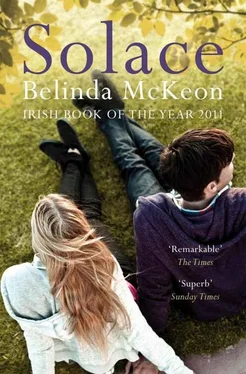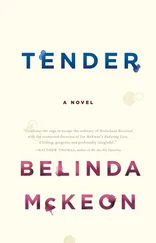She could have got a better traineeship. It would have taken one phone call. During the summer when she had worked for him, her father had introduced her to one of the local councillors and made very clear that if there was anything she wanted she had only to let the councillor know.
‘That man will do any child of mine a fair turn,’ her father had said, and over that summer, she had learned just what her father’s idea of a fair turn involved. Documents vanished. Signatures materialized. Guards came around for nightcaps; the councillor Joanne had met came around whenever he pleased. She typed up one threatening letter after another as her father dictated without even looking up from his newspaper; when people, often old people, came in for meetings with him and left looking deathly pale, it was Joanne’s job to draw up their bills before they had even reached their cars. Other cases were shadier, dealt with only by her father; one had to do with land for an apartment block, another with funds from an unresolved will, another with a drink-driving case in which a local man had been killed. For the work she did, she was not paid; that was not part of the deal. Her father was giving her experience, he told her, and he was giving her contacts, and for the last twenty years, anyway, he had been giving her a roof over her head, and would she type up that letter now like a good girl and then get the solicitor in Longford on the phone.
Sometimes, especially when he had been drinking, her father told her how much it meant to him that one of his children was following him into the trade. But none of her brothers had followed him — none of them had wanted, particularly, to work that hard at school. If there had been a shortcut, their father would have bought it for them, but there was no shortcut, and so he had got Joanne.
And then one day, during that one summer she worked for him, Joanne had packed her things and walked out of his office while he roared abuse at her, and she had gone back up to Dublin, back to the terraced house in Stoneybatter that he had bought as an investment years before, so that he could play at being landlord: the house Joanne had lived in, rent-free, since coming to the city. She kept living there, always intending to move elsewhere, always intending to free herself of this one last debt to her father, but when he dropped dead of a heart attack two years after that summer in his office, she discovered that he had willed the house to her; that it was hers. And yet, in those two years she and he had barely spoken a word to one another. It was something — the silence, but also, probably, the inheritance — for which her mother had never forgiven her. It was something — or rather, something else — for which her brothers scorned her. But she was long past caring what her mother and her brothers thought of her.
When she had passed her first set of law exams, and her mother had told her to call one of her father’s old friends, to get them to put a word in with one of the big firms, she had refused. She had posted the applications, and waited for the rejections to come, and they had come — the firms her father’s friends would have got her into, the firms her classmates longed for, the firms she would have loved to get into herself. Her mother had told her she was ignorant. Each of her brothers had had his own take — Paul said she was stupid, Kevin said she was looking for attention, Frankie told her she was good for nothing and would end up as nothing, and that this was all that she deserved. And when the letter from Brennan and Mullooly had come, and she had gone to their offices to meet them, and Eoin Brennan had asked her whether she had any family background in the law, she had told him that her father had been a schoolteacher and that her mother had worked in a bank.
‘You’ll be a self-made woman, so,’ he had said, winking at her, and she had shrugged, and smiled as nicely as she could.
*
She watched junk on the television all evening, the pile of untouched court transcripts dismayingly within sight. She was hungry, but there was only some cereal and milk, and the thought of getting dressed and going down to the Centra made her feel like she might start shaking again, so she ate a bowl of Rice Krispies and then a bowl of Weetabix, and as the evening wore on she repeated that pattern until she had emptied both cereal boxes. She also drank tea, lots of it, and as the nine o’clock news ended and the Sunday evening film began, she almost began to feel human again, and she stretched out on the lumpy couch, sighing in what sounded like contentment but was actually just relief.
The sound of the doorbell sent a scalding sensation through her chest and down to her fingers and toes. She stepped down the hall as quietly as she could; in this neighbourhood, pleasant as it was, it was not uncommon for a night-time visitor to come bearing a heroin habit, or a needle, or a question about a recent crime involving a heroin habit and a needle.
But it wasn’t a junkie. It wasn’t a guard. It was him. And so that was what he looked like. It was coming back to her, not all of it but some of it, as she peered out through the yellowed peephole, her hands pressed to the wide frame on either side of the door. She remembered him: he had waited with her at the bus stop on the sea road for nearly an hour that morning, the sharp wind bullying their bare skin, families passing by on their Sunday-morning outings. He had pulled her into him, let her have his coat, stared with her out to the pier as the ferry from England sailed in. He was dark-haired, messy-haired, and he was drunk now, she could see that, as he looked not into the peephole but everywhere else: up to the bedroom windows, down to the keyhole, left and right to the narrow street empty of everything except closing-time waifs and strays like him, stumbling home.
And then he swooped out of view, and there came the rattle of the letterbox. She pressed herself against the wall.
‘Too late,’ he said, and he pushed his hand through the slot. Something was scrawled on it in messy blue handwriting, in her handwriting, she saw: her address. ‘Too late,’ he said again. ‘I know you’re in there. I saw your legs.’
She said nothing. She watched as he waggled his fingers in her direction, as his hand groped the air like the hand of a child playing blind man’s buff. His wrist was thin. It was upturned, and through its skin she could see the blue of his veins branching up into his palm. When she reached her own fingers out to his twitching ones, she did not touch them at first, but circled them, slowly, with the curve of her hand, and cupped them, still without touching, from below. Then she raised her hand slightly. His fingers stilled. She ran a finger and thumb along each one, feeling how slender they were, how hard their bones, how smooth and cool their skin. She unlatched the door. Almost as soon as his grasp had slipped away, the rest of him was on her. He tasted of beer and smoke and of the cold night air.
Joanne made it to her desk by eight, and once she had had a coffee and got down to the work of the transcripts, it wasn’t so bad. She was actually interested in the case, she remembered, even if she did sympathize far less with their own client than with the plaintiff. It was a dispute over property: a man was being sued by his mother for demolishing a building at the back of her house and putting a restaurant in its place. Their client was the son, who maintained that his mother had signed the building — a mews house — over to him years previously, granting him permission to do with it whatever he pleased. The mother was in her eighties, and in the transcripts her personality came vividly through; she was determined, she was elegant, and she was proud. Joanne found herself reading the mother’s words as though they were the lines of a novel with which she had fallen in love; the haughty paragraphs seemed to her beautiful, the way they rambled backwards into long-ago passages of the old woman’s life. This morning she was going back over the account the woman had given in court the week before of her relationship with her son, who had been born in East Africa, where the woman and her husband, an officer in the British Army, had been based in the 1950s. Shortly afterwards, they had moved to Dublin, and her husband had bought the house on Fitzwilliam Square, and then, a couple of years later, very suddenly, her husband had died. At first, the woman said, she had ‘minded terribly’, and found the house with its four floors and its high ceilings and its huge windows onto the park too much to bear, but in time she had come to love it again. And she knew, she said, that her son, only a schoolboy when he lost his father, had come to love the house too.
Читать дальше












